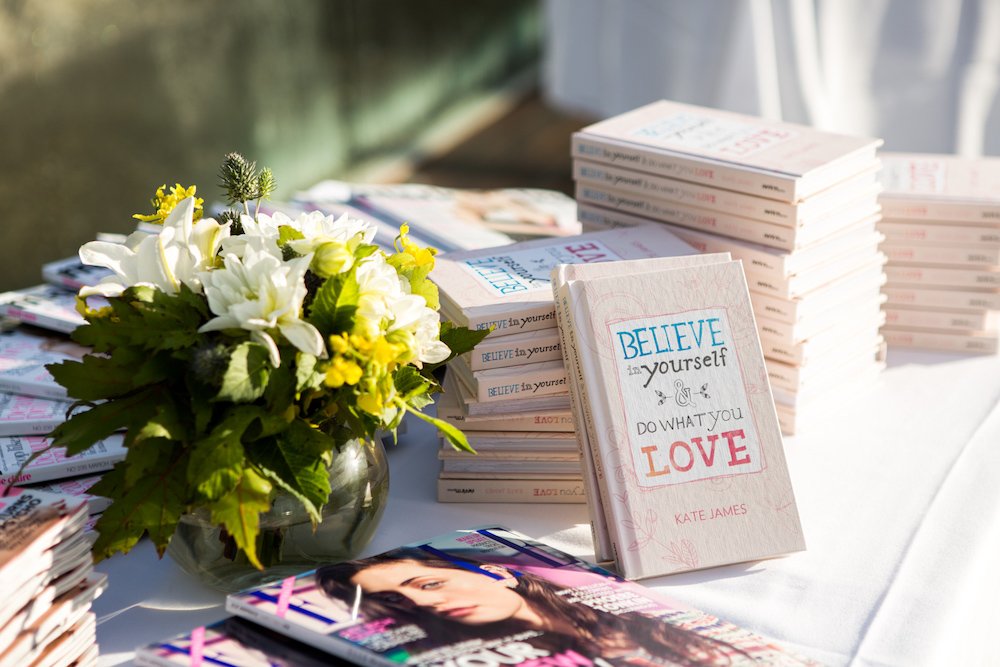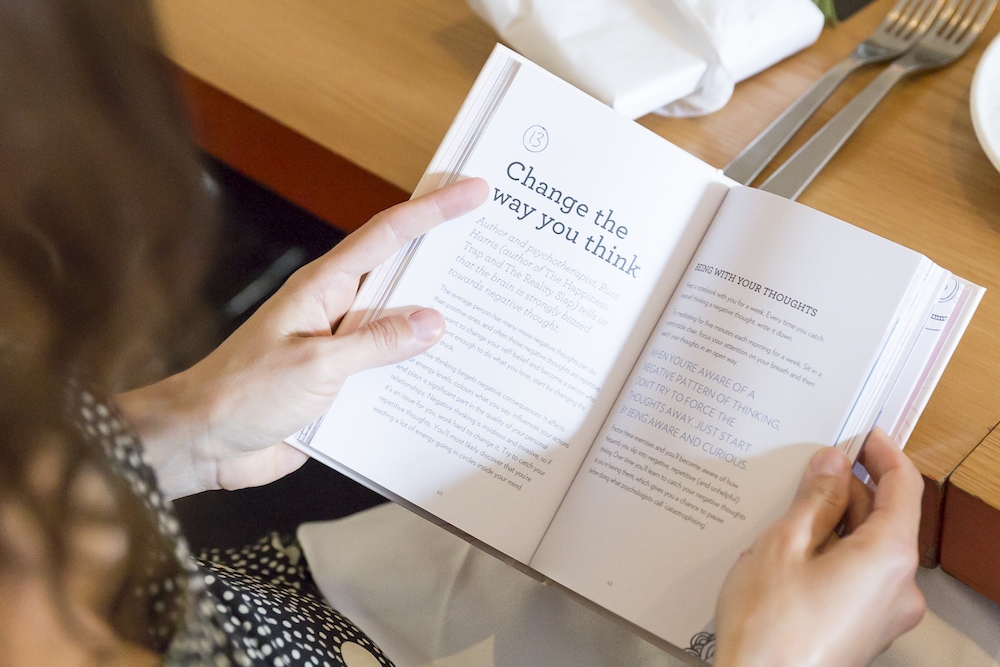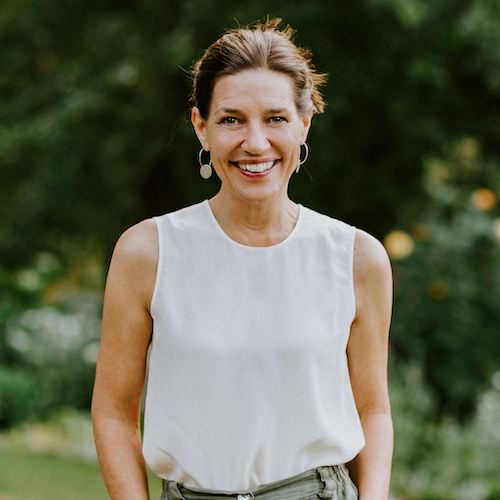
Over the past few years, one of the questions I am most often asked is how to write a non-fiction book. The way I go about it certainly won’t be right for everyone, but if you have a dream of being a published author one day, I hope the following tips will help.
Develop a regular writing practice
Long before I started writing books, I spent many hours practising writing in order to find my natural voice. I wrote articles, newsletters, blog posts and social media posts almost every day. I listened to Natalie Goldberg’s Writing Down the Bones as an audiobook many times and used her writing prompts often.
Make writing a regular part of your day. Write articles or poetry for the fun of it or set yourself a challenge of writing at least a few pages every day.
If you’re unclear about what to write about, Julia Cameron’s Morning Pages exercise is an excellent way to begin. One of the most helpful aspects of this practice is that it teaches you to stay in the role of ‘writer’ while resisting the temptation to be ‘editor’ at the same time.

Read lots and challenge yourself
Anyone who loves the idea of writing probably already reads a lot anyway — but it’s also helpful to vary what you read.
As well as engaging in your favourite forms of fiction and non-fiction, join a book club so you’re exposed to books outside your standard genres. Read long-form journalism as well as shorter articles and occasionally read something that challenges one of your long-held opinions.
It’s also helpful to listen to how other writer’s speak. Learn about their writing process, where they go for inspiration and find out how they push through writing blocks.
Gather ideas
Once you feel inspired to write on a certain topic (or even before your topic is completely clear), gather ideas into a notebook and carry it with you at all times. Jot down anecdotes, observations, quotes you love, even a single word that appeals to you.
Be open to making notes about things that won’t necessarily be included in your book, but simply to gather thoughts that inspire you. Remind yourself that being curious and open will help you to be more creative as you express yourself in written form.
Build your audience early
If you don’t already have a website, create one. Add a mailing list and start writing a regular newsletter. Also, set up your preferred social media platforms. You don’t need to build a presence on every social media channel, but it does help to choose one or two platforms that appeal to you the most. This allows you to begin to practise writing in front of an audience.
Building your audience will serve you well for a few reasons – it’s great writing practise, it’s likely that you’ll find other writers who become an additional source of inspiration, and it will help you to connect with like-minded people.

Write your book proposal
A book proposal will help you really hone in on your idea, define your target audience and put together a marketing plan (which is an important aspect of publishing these days).
Writing a proposal is not something you want to rush. Consider it the ‘business plan’ for your book. Allow plenty of time for researching your subject matter, your target audience and competitive titles. Your book proposal generally includes:
- information about why there’s a need for this book;
- why you’re the best person to be writing it;
- your author bio;
- how the book will solve a problem for your target audience;
- who the people in your target audience are;
- the key selling points of the book;
- a detailed marketing plan;
- how you’ll structure the content; and
- some sample chapters.
Ideally, once you’ve drafted your proposal, ask an editor to cast their eye over it before you send it off.
You’ll find some excellent tips and a book proposal template here.
Meet with your publisher early
Ideally, reach out to your publisher with a proposal and a few chapters written before finalising your manuscript. It’s likely they’ll have ideas about the best format for your content and the best writing style to engage your audience.
I was lucky enough to secure a meeting with Affirm Press before I had written my first manuscript. My proposal was ready and I had drafted a few chapters of the book, but it was very helpful to have their input before the book was written. We also all agreed that the content of the book would work better in a shorter book format, rather than a standard longer-form book.
Don’t run your ideas by everyone
The week after I landed on the title of my first book (Believe in Yourself and Do What You Love), I had breakfast with my friend Mark, who works in advertising. I asked him what he thought and he immediately loved it. Later, several other people indicated that they didn’t like the title at all. I had to trust my first instinct and let their opinion go.
Once you land on an idea for your book or a title, resist the temptation to ask everyone for their opinion.

Create your writing space
Try writing in several different places to find out where you enjoy writing most – and also where you find the words flow easily. You may be surprised to find out that you get more inspiration to write in a noisy café then sitting at a quiet desk.
Write on airplanes, in hotel rooms, at your park or your local library. You may even find that mixing it up keeps your writing fresh and inspired.
Create a routine
A couple of years ago, I listened to an interview between Elizabeth Gilbert and Krista Tippett where both agreed that the process of writing a book is not exactly ‘fun’. Regardless of how much you love writing, researching and drafting a 60,000-word book, it can become a bit of a slog.
Create some structure to your writing practice and work out how you prefer to write. Are you happier to work in 500-word chunks or do you like to commit for a full day? Also, decide on the best time of day to write and once you know these things, set yourself up with a regular routine.
My personal preference is to set aside a full day to write, and then I like to work in two-hour blocks. I take a ten-minute break where I make a cup of tea, have a quick stroll around the garden and stretch my shoulders and arms. Midway through the afternoon, I often take a longer break and go for a longer walk, preferably without any distractions (so no music or podcast). The combination of movement and silence often helps me clarify or generate new ideas.
When you’re stuck for words
Even after years of writing practice, all authors find there are times when they’re completely at a loss for words. At times like this, I find it easiest to get away from my desk – I generally take myself outside – and I try writing by hand.
When I’m totally stuck for words, I write exactly that. “I have no idea what to write today. I’m stuck. I can’t even think about how to start this chapter on overcoming self-sabotage. How do I self-sabotage? One of the ways is by…” and so on.
This method works every time. Eventually, the words start to flow and while initially, they might not be the best words I’ve ever written, they’re usually able to be edited into something reasonable.

Back it up
We all know how important it is to back up your documents, but sometimes we still forget. Make sure you save your document often and back it up at least once a day. These days I have a working copy of my manuscript in Google Docs, I then also save copies into Dropbox and on my laptop. I’ve had many instances when my software has crashed, resulting in loss of content. I also find breaking longer manuscripts into several smaller documents is a great way to prevent any loss of content.
Self-publishing
Writing a book is a big commitment and finding a publisher, an even bigger one. If you’re passionate about sharing your thoughts with the world and you can’t find someone to publish your work, self-publishing is a much more accessible option these days. It’s not something I know a huge amount about, but I have colleagues who highly recommend James Altucher’s work on self-publishing. He argues it’s actually a better way to go.
And finally, enjoy the process
Maybe the most important thing to remember in all of this, is that writing your book should be enjoyable. The words won’t always come easily, but keeping your purpose in mind – your reason for writing this book at all – will help you to stay connected with how you want your writing to benefit your audience. Sharing your wisdom in the hope that you might inspire others, is the thing that makes it all worthwhile.
If you’re still stuck, get in touch. Kate offers coaching for authors to get them through the creative process.

